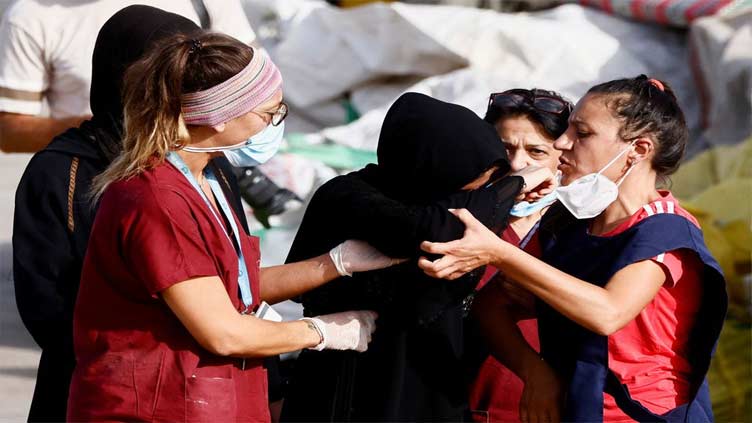Italy criticises Germany for funding migrant charity groups

World
Germany's foreign ministry said rescuing people at sea is a legal, humanitarian and moral duty
ROME (Reuters) - A German plan to finance charities helping migrants in the Mediterranean causes difficulties for Italy, defence minister Guido Crosetto said on Sunday, as Rome tries to enforce tougher measures to stem the flow of sea arrivals.
Following reports in Italian media, a spokesperson for the German foreign ministry said on Friday that Berlin was implementing a parliamentary financial support programme for both civilian sea rescue and projects on land.
"We have received several applications for funding. The review of the applications has already been completed in two cases," the spokesperson told Reuters, saying the funding amounted to between 400,000 and 800,000 euros ($426,000-$852,160) for each project.
Italy's Crosetto told daily La Stampa that Rome regarded the German move as "very serious", adding his government was instead committed to fighting the human smugglers he said should be treated as "international criminals."
"Berlin pretends not to realise that, in doing so, it causes difficulties to a country that in theory should be a friend," said Crosetto, a senior member of Prime Minister Giorgia Meloni's Brothers of Italy party.
Germany's foreign ministry said rescuing people at sea is a "legal, humanitarian and moral duty".
Latest interior ministry data shows over 132,000 migrants have reached Italy by boat so far this year against around 69,000 in the same period of 2022.
/cloudfront-us-east-2.images.arcpublishing.com/reuters/Z4GWJ6L4ZVKD3ARYU3PEGXJS6Y.jpg)
On Saturday, charity SOS Humanity said in a statement it would receive around 790,000 euros from the German government.
Italy, which takes a hard-line against illegal immigration, said this week it would increase the number of detention centres to hold migrants ahead of their possible repatriation and lengthen the time they could be detained.
The government also ruled they will have to pay to avoid detention while their request for protection is being processed, drawing strong criticism from human rights groups.

